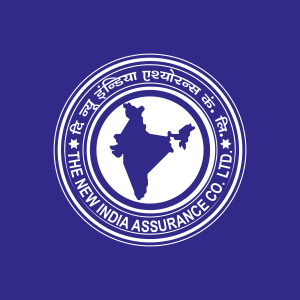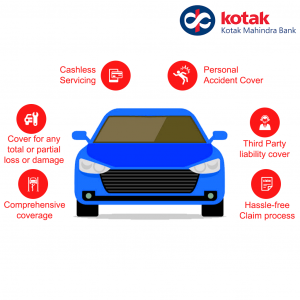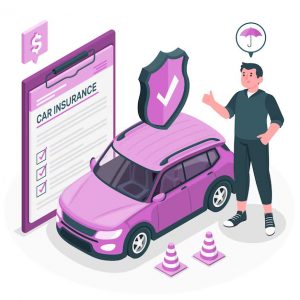Why Transfer Car Insurance?
Four-wheeler insurance is procured to financially safeguard a car from unforeseen risks such as road accidents. When you no longer own the vehicle, retaining the motor insurance policy serves no purpose. Hence, when selling your car, it’s crucial to transfer the existing insurance policy to the new owner. Conversely, if you’re purchasing a second-hand car, ensuring the ongoing motor insurance policy is transferred to your name is equally vital. Here are two key reasons for transferring car insurance:
-
Avoiding Future Liabilities:
- In the case of purchasing a second-hand car, transferring the existing insurance policy is essential to avoid future liabilities. Without the transfer, filing a third-party claim in the event of an accident becomes impossible, leaving you responsible for third-party liabilities.
- If selling your car, failure to transfer the existing vehicle insurance policy to the new owner can result in potential liabilities for third-party accidental damages caused by the new owner. As the policyholder, you might still be held accountable.
-
Retaining No Claim Bonus (NCB):
- For every claim-free policy year, a No Claim Bonus (NCB) is earned, providing a discount on the car insurance renewal premium. When selling your car, transferring the earned NCB to your new car allows you to avail a discount on the renewal premium of the new car policy.
- To retain the NCB, you must inform your motor insurance company about the car sale and obtain the NCB certificate. This certificate is crucial for applying the earned discount to the renewal premium of the new car.
How to Transfer Car Insurance in India?
The process of transferring four-wheeler insurance aligns with the transfer of ownership. Once the new owner purchases the car, the previous owner’s policy becomes invalid. This is because, for claim purposes, the name and address on both the registration certificate and insurance documents must match as per the Insurance Regulatory and Development Authority of India (IRDAI). A mismatch occurs when the insured car is sold to another person. An insurance name transfer is crucial for emergencies, helping the new owner recover damages.
Documents Required for Car Insurance Transfer:
To initiate the transfer of car insurance to the new owner, a transfer request must be raised with the motor insurance provider. Along with a transfer fee, the following documents are required:
- New copy of the registration certificate
- Form 29
- Form 30
- Old car insurance policy documents
- No Objection Clause (NOC) from the previous policyholder
- New application form
- Inspection Report (conducted by the insurance company)
- No Claims Bonus difference Amount
No Claim Bonus (NCB) in Car Insurance Transfer:
One notable exception in the car insurance transfer process is the No Claim Bonus (NCB). While the insurance policy can be transferred to a new car owner, the NCB cannot be transferred to any other party. It can only be transferred to the new car of the same owner. The NCB retention letter is a crucial document that allows the previous policyholder to apply the NCB discount to the insurance premium of the new car.
Documents Required for the NCB Retention Letter:
To obtain an NCB retention letter, the insurer typically requests the following documents:
- Request letter for policy cancellation
- Original policy copy and certificate of insurance (Form 51)
- Form 29 (notice of transfer of ownership)
- Form 30 (application for intimation and transfer of ownership)
- Photocopy of registration certificate book with the new owner’s name
- Proof of delivery of the car to the new owner
Importance of Transferring the Car Insurance Policy to the New Owner
Below we have enlisted some advantages of transferring the car insurance policy to the new owner:
-
Buying or Selling A Used Car Not An Easy Task
It is crucial to formally transfer all associated paperwork into the new owner’s name when transferring ownership of the vehicle to them. The following justifies relocating your auto insurance policy:
-
Liability Insurance For Future
To file a third-party insurance claim, the new owner’s name must appear on the vehicle insurance policy in the event that a third party or their property is injured. In the event that the vehicle insurance policy has not been transferred, you can be held legally liable and the third-party claim would be rejected.
-
Retaining The No Claim Bonus
The insurance company will give you a no-claim bonus, or a significant premium reduction for the following year, if you are a seller and have not filed a claim throughout the policy’s duration. To get discounts when buying a new insurance policy, you as the seller must contact your insurance provider and redeem the NCB certificate.
How to Transfer Car Insurance Policy From One Person To A New Owner in India?
Transferring a vehicle’s insurance name is an important procedure. The seller must transfer the auto insurance coverage to the new owner in accordance with the transportation department’s rules. Make sure that the insurance has been moved to the buyer under the new owner’s name.
To transfer an auto insurance policy to a new owner, the following steps need to be taken:
STEP 1:
Verify that you possess all the necessary paperwork to start the transfer of your auto insurance.
STEP 2:
Apply for the transfer of the auto insurance policy within the allotted time frame as soon as the ownership transfer procedure is finished.
STEP 3:
Choose the full coverage auto insurance policy together with any additional coverage that you feel is necessary.
STEP 4:
Once you have all the necessary paperwork, such as forms 29, 30, and the Sale deed, your auto insurance policy will start to be transferred.
STEP 5:
A surveyor from the insurance company will come look over the vehicle.
STEP 6:
After the evaluation is complete, the policy will be transferred to the new owner’s name.
FAQs on Car Insurance Transfer:
Q: Can I transfer third party car insurance?
A: Yes, third-party car insurance can be transferred from the previous owner to the new owner. However, it must be completed within the first 14 days of the vehicle purchase to ensure continuous coverage.
Q: What is the format for the car insurance transfer letter?
A: Write a car insurance transfer letter addressed to the manager of your motor insurance company, requesting the transfer. Alternatively, download the transfer application from your insurer’s website.
Q: Can I transfer my NCB to the new owner of my car?
A: No, the No Claim Bonus cannot be transferred to the new owner. It remains with the policyholder and can only be transferred to the new car of the same owner.
Q: Can I transfer my car’s RC without transferring vehicle insurance?
A: No, the transfer of the car’s Registration Certificate (RC) to a new owner is not possible without a valid vehicle insurance policy. Insurance is a mandatory document for RC transfer.
Q: How much time does it take for an RC to be transferred?
A: The duration for transferring the RC typically ranges from 20 to 60 days, depending on factors such as jurisdiction, state, and other circumstances.
Q: How much fee do I have to pay to transfer the ownership of my car?
A: The car ownership transfer fee varies across states. For instance, in Delhi, the fee for transferring the RC is generally between Rs. 300 to Rs. 500.
Q: Can I transfer the ownership of my car online?
A: No, the ownership transfer of a car cannot be done online. Physical visitation to the Regional Transport Office (RTO) with the required documents is necessary.
Q: Can I get an NOC from my RTO online?
A: Yes, you can obtain a No Objection Certificate (NOC) online by downloading Form 28. Submit the form and required documents to the RTO for processing after police verification and Audit Para clearance.
Q: Why is it essential to transfer car insurance when selling or buying a used car?
A: Transferring car insurance is crucial to avoid future liabilities and retain benefits like the No Claim Bonus (NCB). It ensures that the new owner is covered for third-party claims and helps the seller avail of discounts on the premium for the new car.
Q: What happens if I don’t transfer the car insurance to the new owner?
A: Without transferring the insurance, the new owner may face difficulties in filing third-party claims, and the seller might still be held liable for potential damages caused by the new owner. It’s essential for both legal compliance and financial protection.
Q: Can I transfer my No Claim Bonus (NCB) to another person?
A: No, the NCB cannot be transferred to another person. It remains with the policyholder and can only be applied to the premium of the new car purchased by the same owner.
Q: How do I obtain the No Claim Bonus (NCB) retention letter for a new car?
A: To get the NCB retention letter, the policyholder must request policy cancellation, provide the original policy copy, fill out Form 29 and Form 30, submit a photocopy of the new registration certificate, and provide proof of delivering the car to the new owner.
Q: Can I transfer third-party car insurance, or does it apply only to comprehensive coverage?
A: Yes, third-party car insurance can be transferred from the previous owner to the new owner. It is crucial to initiate the transfer within the first 14 days of vehicle purchase for continuous coverage.
Q: Can I transfer my car insurance online, or is a physical visit to the insurer required?
A: The transfer of car insurance and other ownership-related processes cannot be done online. A physical visit to the Regional Transport Office (RTO) with the required documents is necessary for the transfer.











